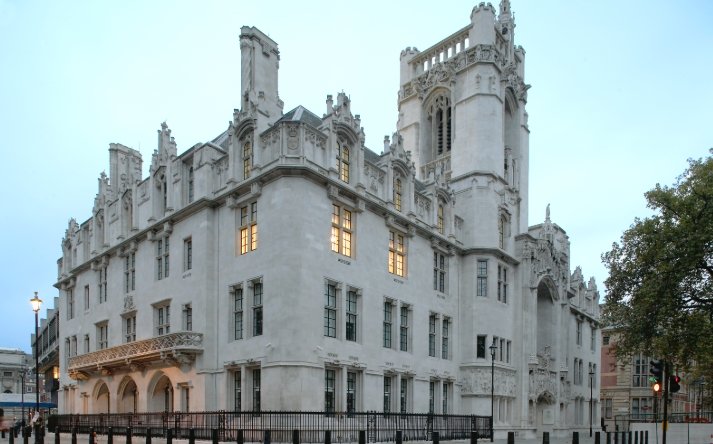A decision that could reshape UK equality law is coming next week — and it’s already sparking fierce debate across the political and legal spectrum.
On Wednesday, April 16, the UK Supreme Court will deliver its judgment in For Women Scotland Ltd v The Scottish Ministers. At stake: a defining answer to what “sex” means in the Equality Act 2010 — and whether that meaning can be altered by a Gender Recognition Certificate (GRC).
The ruling is expected around 10am and will be streamed live from Court 1. With interest from activists, politicians, and legal observers alike, the spotlight is firmly on the judges.
The Legal Faultline: Biological Sex or Legal Gender?
At the heart of the case is a deceptively simple question: does someone who holds a GRC — which legally changes their sex — count as their acquired sex for all purposes under the Equality Act?
For Women Scotland (FWS), a grassroots women’s rights group, argues that “sex” in the Act should mean biological sex — fixed and factual. They point to an earlier legal win where the Court of Session in Scotland ruled that sex does not mean gender identity.
The Scottish Government disagrees. It argues that “sex” includes the acquired sex of someone who has a GRC, aligning with the Gender Recognition Act 2004. They’ve had backing from Amnesty International UK and, interestingly, the Equality and Human Rights Commission (EHRC) — though the EHRC’s support came with a warning.

EHRC’s Uneasy Alliance and a Call for Clarity
The EHRC technically sides with the Scottish Government. It says that under current law, a GRC does change a person’s sex for Equality Act purposes.
But it doesn’t stop there.
The watchdog raised the alarm about legal confusion. It called on Parliament to fix the “muddle,” suggesting the Gender Recognition Act be disapplied from the Equality Act altogether. That’s a big statement from the UK’s official human rights body.
This case has become a lightning rod for broader tensions over sex-based rights, gender identity, and the way public policy is built.
What Will Happen If the Court Sides with the Government?
The implications of the ruling could be wide-ranging. If the court backs the Scottish Government fully, the definition of “sex” across the Equality Act may become conditional — a legal patchwork depending on GRC status.
Here’s what that might mean in real life:
-
Creating single-sex services (like women’s refuges or changing rooms) becomes much harder.
-
Public bodies could be obliged to include trans women with GRCs in female-only spaces.
-
Biological sex data becomes blurred in policymaking.
Even more confusing? The Inner House of the Court of Session previously said the meaning of “sex” could vary across the Act — unless that interpretation became absurd. Legal experts called that view surprising, even jarring, because laws usually assume one fixed meaning for key terms.
It’s possible the Supreme Court might endorse that flexible approach.
What If FWS Wins?
For Women Scotland is hoping for a clear judgment: that “sex” means what it always meant — male or female, based on biology.
A win for FWS would mean the Scottish Government has to rewrite its statutory guidance under the Gender Representation on Public Boards (Scotland) Act 2018. That law aimed to improve women’s representation in public roles — but it currently counts trans women with GRCs as women.
More than just the Scottish Government would be affected.
-
The EHRC would need to revise its draft code of practice for service providers.
-
Public bodies — councils, schools, universities — would need to recheck their policies.
-
So would employers, charities, and private service providers across the UK.
This isn’t some fringe bureaucratic tweak. It affects everything from who can access women-only services to how equality impact assessments are carried out.
Support and Interventions: A Divided Landscape
This case hasn’t just attracted lawyers and civil servants. It’s become a flashpoint in the culture wars, too.
FWS is backed by several lesbian rights groups: Scottish Lesbians, the Lesbian Project, and LGB Alliance. Sex Matters, a campaign group led by Maya Forstater (who won her own sex-based rights case in 2021), also intervened.
On the other side: Amnesty International and the Scottish Government, with support from equality officers in government who say GRCs must be respected as legally altering someone’s sex.
Notably, this case has national consequences. The Equality Act applies across England, Scotland, and Wales.
How Different Outcomes Could Play Out
The range of potential outcomes isn’t binary. Here’s a quick table breaking down the key scenarios:
| Outcome | What it Means | Consequences |
|---|---|---|
| Scottish Govt wins (full) | Sex includes GRC status | Single-sex services harder to operate legally |
| Scottish Govt wins (EHRC view) | GRC changes sex, but law is flawed | Courts defer to Parliament to fix the law |
| Mixed outcome (Inner Court model) | Meaning of sex varies by context | Legal confusion deepens |
| FWS wins | Sex = biological sex only | Statutory guidance and policies must be rewritten UK-wide |
Just one sentence: the ripple effects will be huge.
Live Hand-Down: How and When to Watch
The Supreme Court will deliver its ruling from 10am on Wednesday, April 16, and the public can watch via livestream. If you’re attending in person, the court opens at 9am, but doors close by 9:45am.
No cameras, no videos, no slogans — those are the rules. It’s a court, not a protest venue.
Expect a 10–15 minute summary from the judges, followed by publication of the full judgment and a press summary on the Supreme Court website.
This decision isn’t just about one Scottish law. It’s about how the UK defines a fundamental characteristic — one that underpins everything from healthcare to prisons to equal pay audits.


















